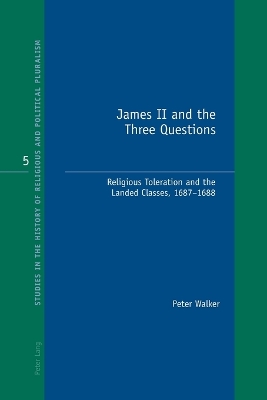Studies in the History of Religious and Political Pluralism
1 primary work
Book 5
The reign of James II, England’s last Catholic king, remains controversial. His attempt to manipulate the electoral system to obtain a parliament that would abolish the Test Acts and Penal laws, which discriminated against his fellow Catholics, provoked his subjects to resistance and paved the way for the Revolution of 1688. The campaign is breathtaking both in its innovation and naiveté and nowhere is this more clearly highlighted than in the canvass of the gentry in the winter and spring of 1687-8. The canvass asked prospective MPs and electors to commit themselves to repeal.
Historians have viewed the canvass as a failure: it did not bring the results the king hoped for and created a united opposition to the Stuart regime. However, as this book shows, scrutiny of the original canvass returns reveals that support for the king was stronger than was once assumed. It also reveals an endorsement of the general concept of religious toleration. William of Orange’s invasion destroyed the king’s plans, but given the time, could James have nurtured these ‘green shoots’ of religious pluralism in what was still a fiercely Protestant nation?
Historians have viewed the canvass as a failure: it did not bring the results the king hoped for and created a united opposition to the Stuart regime. However, as this book shows, scrutiny of the original canvass returns reveals that support for the king was stronger than was once assumed. It also reveals an endorsement of the general concept of religious toleration. William of Orange’s invasion destroyed the king’s plans, but given the time, could James have nurtured these ‘green shoots’ of religious pluralism in what was still a fiercely Protestant nation?
